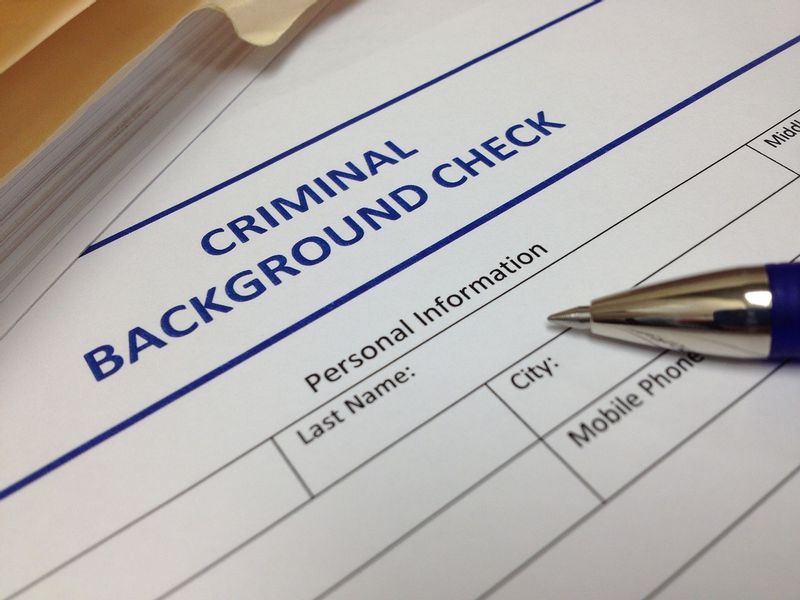Updated Regulations on Employer Use of Criminal History in Hiring

Employers are always looking to hire qualified workers to advance their businesses. Chances are you recently have or soon plan to hire some new skilled labor to join your team. However, as an employer you know that the hiring process involves various intricacies in and of itself, including what questions you can ask of a potential employee or a newly hired employee. One of these questions involves a person’s criminal history. If you are an employer that looks at applicants’ criminal histories, the recently amended regulations in this area should be on your radar.
The Fair Chance Act (“Act”) was enacted in California in 2017 to “reduce the negative stigma of a conviction and increase a person’s likelihood of being viewed as more than just his or her record [so they can be] ultimately hired.” To that end, the Act “tailor[s] hiring practices to reduce such stigma and offer workers with records a fair shot at employment.” (Ibid.) However, as one commentator noted during this year’s most recent rulemaking process to amend the regulations in this area, “our experience over the past 5 years shows that the Act has had negligible impact on employer bias because employers find the individualized assessment standard difficult to implement in a meaningful way.”
The Civil Rights Council, a branch of the California Civil Rights Department, has recently promulgated and adopted amendments to Title 2, sections 11017 and 11017.1 of the California Code of Regulations to clarify the employer’s role in asking these sensitive employment questions. The Office of Administrative Law has just approved these changes, which go into effect on October 1, 2023. So how does this implicate employers? The goal with the rulemaking appears to have been to clarify the already existing rules for employers with clear examples to provide more guidance as they choose new members for their workforce.
Criminal History and the Application Process Clarified
It is clear that California law prevents questioning applicants about their criminal past, with the exception of positions in law enforcement or certain areas of government. The updated regulations now provide more guidance.
- Language has been added that makes clear that employers violate the FEHA when they include certain statements on job advertisements or application forms that undermine the individualized assessment (such as “no felons” or “must have clean record”).
- During the application process, the amended regulations provide that any criminal history conveyed by the applicant may not be used by the employer until after a conditional job offer has been made.
- Certain categories of an applicant’s criminal past may never be used, even if offered up by the applicant himself or herself. These include arrests without convictions or referrals to or participation in pre-trial or post-trial diversion programs.
Revoking a Conditional Job Offer Involves an Individualized Assessment
Once a conditional position has been offered, the regulations already in place require that the employer conduct a three-pronged individualized assessment should the employer intend to deny the applicant a job based on criminal past: (1) nature and gravity of the offense; (2) time elapsed since the offense or conduct and/or completion of the sentence; and (3) the nature of the job held or sought.
The amended regulations now enhance the three prongs with further explanations and examples to assist the employer:
Consideration of the nature and gravity of the offense may include but is not limited to:
- The specific personal conduct of the applicant that resulted in the conviction;
- Whether the harm was to property or people;
- The degree of the harm (e.g., amount of loss in theft);
- The permanence of the harm;
- The context in which the offense occurred;
- Whether a disability, including but not limited to a past drug addiction or mental impairment, contributed to the offense or conduct, and if so, whether the likelihood of harm arising from similar conduct could be sufficiently mitigated or eliminated by a reasonable accommodation, or whether the disability has been mitigated or eliminated by treatment or otherwise;
- Whether trauma, domestic or dating violence, sexual assault, stalking, human trafficking, duress, or other similar factors contributed to the offense or conduct; and/or
- The age of the applicant when the conduct occurred.
Consideration of the time elapsed may include but is not limited to:
- The amount of time that has passed since the conduct underlying the conviction, which may significantly predate the conviction itself; and/or
- When the conviction led to incarceration, the amount of time that has passed since the applicant’s release from incarceration.
Consideration of the nature of the job held or sought may include but is not limited to:
- The specific duties of the job;
- Whether the context in which the conviction occurred is likely to arise in the workplace; and/or
- Whether the type or degree of harm that resulted from the conviction is likely to occur in the workplace.
When an Employer Intends to Withdraw a Job Offer Due to Criminal History
Under current law, if the employer decides to revoke the job offer due to the applicant’s criminal past, the applicant has the chance to respond with evidence challenging the accuracy of the conviction history report that is the basis for the decision to rescind the offer or evidence of rehabilitation or mitigating circumstances.
The amended regulations now provide more detail as to what applicants can include in their responses. Employers are prohibited, however, from requiring documentary evidence or disqualifying an applicant from the employment conditionally offered for failing to provide any specific type of documents or other evidence.
The rules also now give employers extra guidance for reassessment of the situation after having received the applicant’s response challenging the accuracy of the criminal history report used by the employer to make his or her decision.
Final Thoughts
Although these amended regulations are now filled with additional guidance, they have also made this area of the law more complex and potentially overwhelming. If you use criminal history as part of your hiring methodology, please consider consulting Rosasco Law Group, APC so we can assist you in maneuvering your way through the rules.




